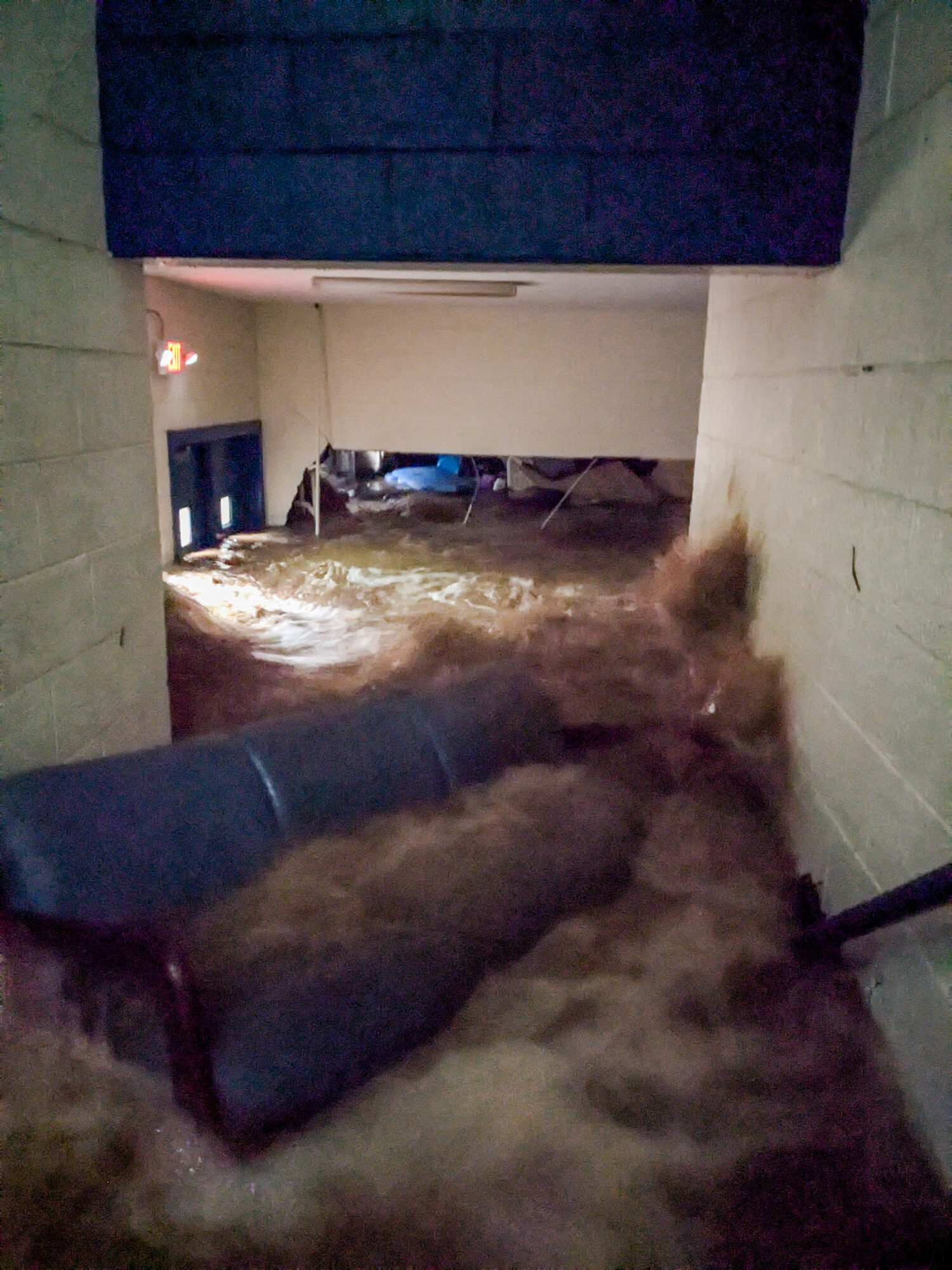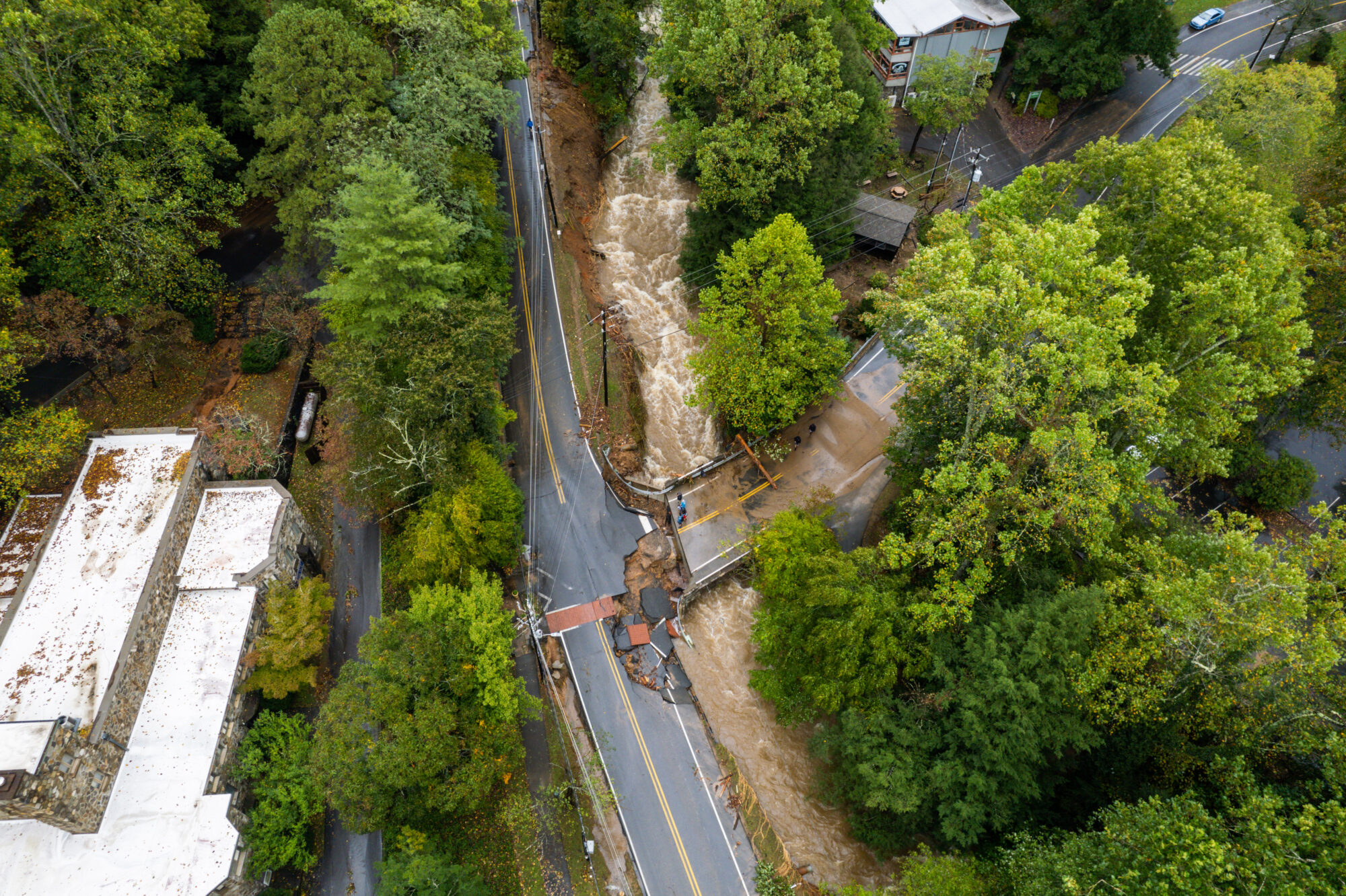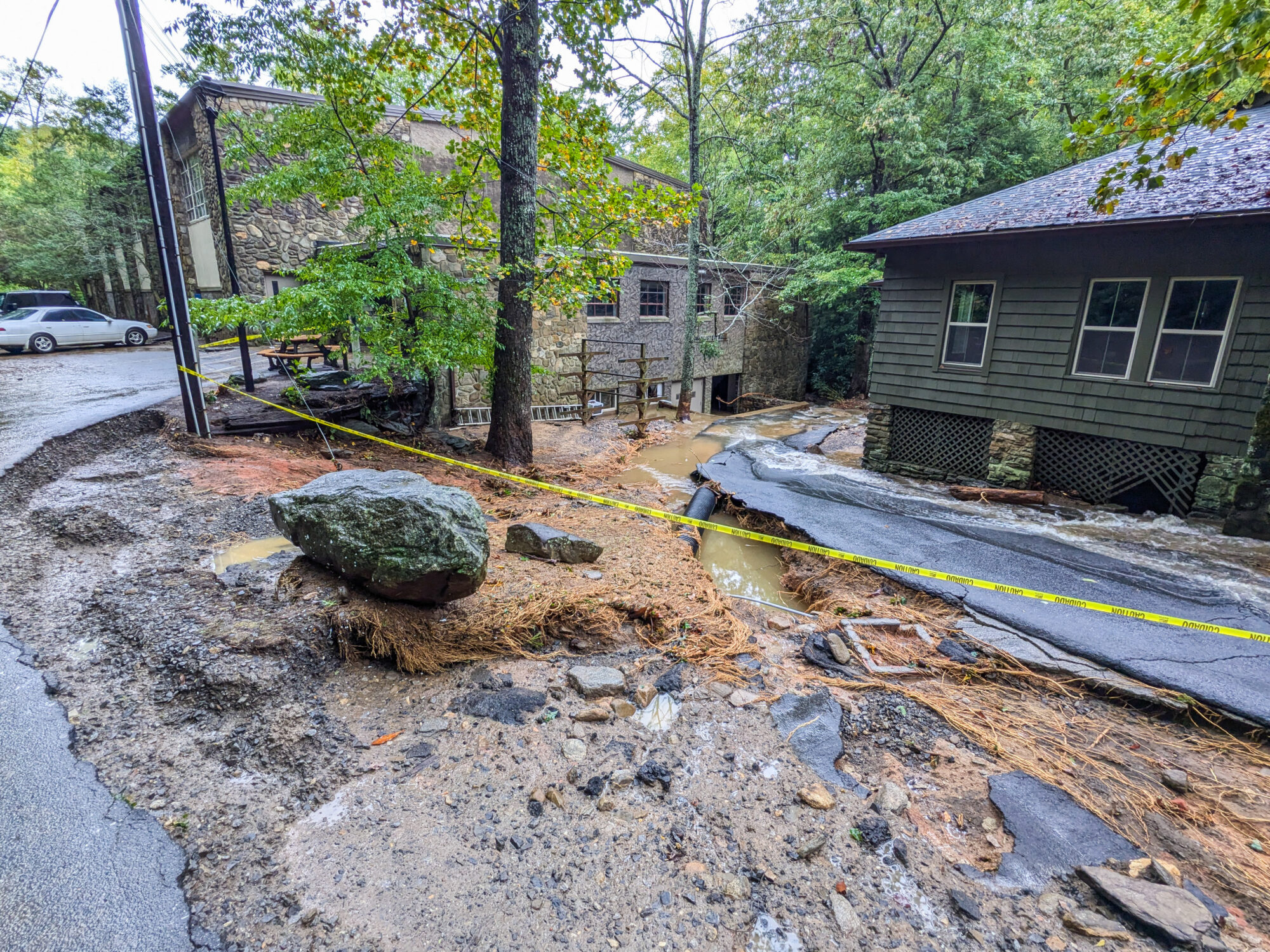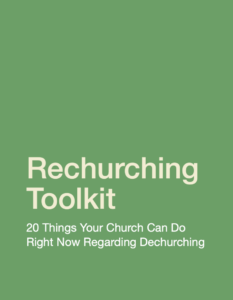Paul Maurer was on the plane back from the Fourth Lausanne Congress in South Korea when he began getting texts from work and home: a category 4 hurricane named Helene was plowing across the eastern United States, heading right for his home and the college he leads in the Asheville area.
By the time Maurer landed Friday evening in Charlotte, North Carolina, Helene’s 140 mph winds and heavy rain had killed hundreds of people, destroyed towns, and caused landslides in multiple states.
At Montreat College, where Maurer is president, one of the small mountain streams that runs through campus had become a raging river.

“The lower level of our gym became part of the river,” he said. “Over five feet of water was running through the fitness center, the offices, and the classrooms.”
The students were safe in the dorms but didn’t have electricity or running water. Faculty and staff were at home, but Maurer didn’t know if they were OK and he couldn’t ask—there was no cell service.
“I grew up and lived in tornado areas, and I lived in California in earthquake areas, but I’ve never seen anything of this magnitude,” he said. “It is surreal.”
The Gospel Coalition asked Maurer if his faculty and staff made it, what he did with the hundreds of students still on campus, and how he saw God at work through it all.
Was anyone who worked at Montreat killed or injured?
As far as we know, no one died, and I’m not aware of any serious injuries. We have employees who lost their homes and all their earthly possessions. That is devastation, and that is real. But God protected our people.
I tried to drive home Friday evening but was stopped 20 miles from home by an interstate closure and state troopers who said there were no open roads into western North Carolina. I drove two hours back to Charlotte, where there were only a few hotel rooms left.
I spent Saturday morning on the phone, triaging with my cabinet and reaching out for help. I was in Charlotte, and my VP for administration / CFO happened to be in Michigan. My head of communications was in Greenville, South Carolina. It was helpful that we weren’t on campus, because we could at least communicate with each other. It was harder to communicate with those on campus because the phone service was badly compromised.
Did you have to evacuate the students?
We never issued an evacuation order. Instead, because floodwaters on Friday were so dangerous, we issued a shelter-in-place order. The power lines were down, the bridges were collapsed, and the trees were down everywhere, so it wasn’t safe for students to leave.

On Saturday, I called Edward Graham, the COO at Samaritan’s Purse and one of our board members. I told him we had students on campus and were about to run out of drinking water. Ten minutes later, he called me back and said we’d have a truckload of bottled water in the morning.
Sure enough, Sunday morning the Coca-Cola bottler in Charlotte delivered a truck full of bottled water. Their CEO made the call. What a blessing from God.
By then, students were beginning to leave on their own. By Sunday lunch, there were only about 40 students left. By noon on Monday, we’d worked to find everyone a place to stay.
How badly are your buildings damaged?
Only one is completely unusable—that’s the gym. Some of the equipment was washed into Lake Susan, and the offices and classrooms are filled with mud and debris. But it’s still structurally sound, and we can restore it.
About nine other buildings were also damaged. Most of that is minor—wet carpets, leaking roofs and windows. One of the residence halls had standing water on the first floor for several days. That one has a little more damage.
Will you be able to replace all of that?
We have really good insurance, by God’s grace. The insurance adjuster was on-site last week, and he immediately called in a dozen people to start remediation. We’ll be able to resume classes online on October 14 and hope to be back in person by October 21.

The town was also quick to respond. The administration called contractors even before the storm hit. They were working by Monday morning, and by Wednesday the two washed-out bridges were passable and a washed-out road was reclaimed. The electricity is back on and they’re working on the water systems.
All these good things are God’s blessings.
How else have you seen God at work?
The reality of the magnitude of the devastation is shocking. It is utter devastation. You can see all the pictures and videos online, but it is completely different to drive through it, to live in it. Words cannot describe how bad it is.
But the response of the Christian community, of the church, has been a beacon of light. A very large portion, from what I can tell, of the relief work has come from private, mostly faith-based organizations.
Day after day, I see helicopters coming in and out from places like Samaritan’s Purse. A lot of churches are now distribution centers, where you can go for food, water, and clothing.
Yesterday I got a call from Steve Thomas in Charlotte. He started a men’s Bible study in 2002. He said to me, “I need a staging area because I’m bringing 40 to 50 guys and a semitruck loaded with supplies.”
I estimate that conversation has been multiplied hundreds of times. It’s organic, spontaneous, and community-oriented. We’ve got people coming in from all over the country with pickup trucks full of supplies. Who are these people?
It’s the church.
20 Things You Can Do Right Now to Prevent Dechurching
 We’re currently experiencing the largest and fastest religious shift in the history of the United States. But there are practical things we can do inside our local churches.
We’re currently experiencing the largest and fastest religious shift in the history of the United States. But there are practical things we can do inside our local churches.
Jim Davis and Michael Graham have commissioned the largest and most comprehensive study of dechurching in America. Informed by their findings, they’ve written a book and developed this corresponding toolkit with resources to help you address the dechurching phenomenon.
We’re delighted to offer you the ‘Rechurching Toolkit’ for FREE today. Click on the link below to get instant access to this resource—worth $100—and be equipped to understand and address the issues behind dechurching.


































